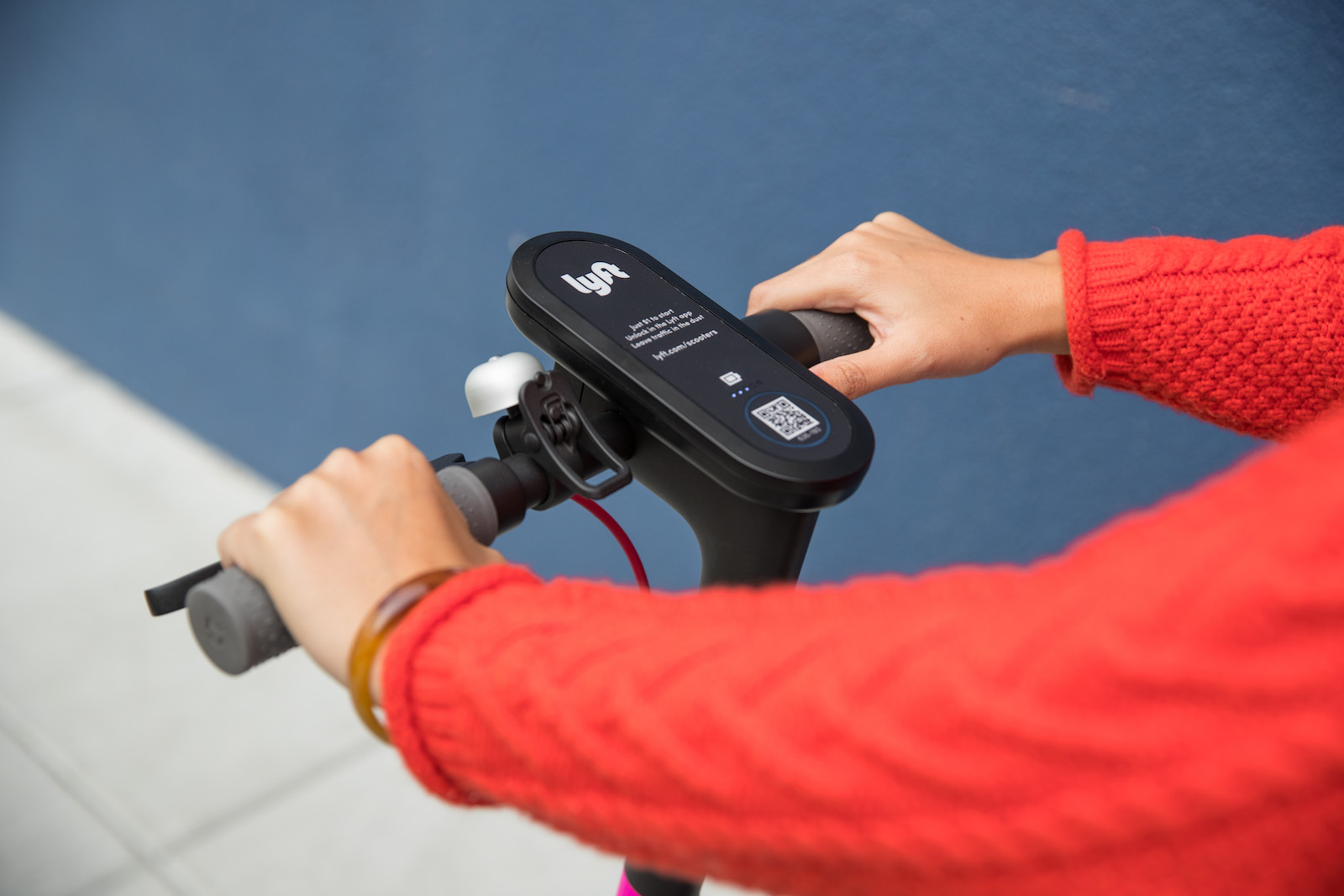The Local newsletter is your free, daily guide to life in Colorado. For locals, by locals.
More electric scooters are coming to Denver, this time from the popular ride-sharing company Lyft, which launched its new product on Thursday in the Mile High City. While other companies like Bird and LimeBike began operating similar services in the city earlier this summer, Lyft took a less invasive approach as it chose Denver as its first location to launch its new scooter service. As part of the city’s Dockless Mobility Pilot Permit Program, Lyft was permitted to launch 350 scooters as well as 500 electric bikes—which will be coming to the city in the “near future,” according to Gabe Cohen, Rocky Mountain Region general manager at Lyft.
Cohen says Lyft is committed to working closely with the city to ensure the new service is not a burden for residents or Denver officials. “We want to do this right,” he says. “We probably won’t put 350 scooters on the streets the first day. We’ll ramp up to that over a few days.” Lyft took its time before deploying the scooter service, because the company didn’t want to damage its relationship with the city. “We didn’t just want to dump these on the streets and start saturating without doing this carefully,” Cohen says. “Lyft has taken the approach to work closely with cities and only launch when cities are supportive and they’ve created a process. We’ve intentionally decided not to launch when a city is not ready.”

Lyft’s process stands in stark contrast to how Bird and LimeBike deployed their scooter services back in May. Seemingly out of nowhere—and with little or no warning to city officials—the companies dropped hundreds of scooters in Denver and were ultimately forced to cease operations in June. The city worked with the companies to create a pilot program which allowed the electric scooters to return in late July.
Still, the return of e-scooters has brought challenges. Despite rules from the city that mandate the scooters be left at RTD stops and out of the right of way on pedestrian sidewalks, Lime and Bird scooters have been found strewn across Downtown Denver—sometimes tipped over, piled up, and broken. One Bird scooter was even spotted at the bottom of the Platte River.
Hey @BirdRide, @bmizz505 and I found one of your scooters in the Platte River pic.twitter.com/wIRMrVlghC
— Anders D Lund (@AndersDLund) August 13, 2018
Asked how Lyft would avoid this problem with its own scooter service, Cohen pointed to the company’s long-standing relationship with Denver. “We have had a physical presence here for many years, so it’s in our best interest to work closely with the city on messaging,” he says. He noted that Lyft will educate Denver riders online and through its app on how to ride and park its scooters. Cohen also said that, because Lyft operates its ride share service in the city, it already has a large team in place that will pick up the scooters every night, take them to a warehouse, charge them, run safety checks, and make sure they’re well-maintained.
While it’s hard to predict how riders will behave with the new scooters, Lyft’s team may actually have more incentive than other companies to prevent its scooters from becoming litter. In fact, just last week, Lyft became the official ride-share partner at city-owned and operated arts and entertainment sites like Red Rocks, the Denver Performing Arts Complex, the Colorado Convention Center, as well as other popular venues. According to Cohen, Lyft’s goal is to provide Denver users with multiple modes of transportation all within one app. When users update their Lyft app, they’ll be able to reserve a ride-share car, a scooter or—soon—an electric bike, all in one place. Like the other electric scooter services, Lyft’s new product costs one dollar to activate, plus 15 cents per minute thereafter.
The 350 scooters from Lyft equals the number already deployed by Bird and LimeBike, bringing the total in Denver to 1,050. But more scooters are on the way. Denver Public Works also granted companies Spin and Razor permits to deploy 350 scooters each within the next two months, and just two weeks ago Jump, an Uber company, launched 250 electric bikes and plans to scale up to 500 in 2019.
Are all these scooters and e-bikes necessary? It’s hard to say. But one thing we know for sure: Denver’s scooter takeover is going full throttle.










